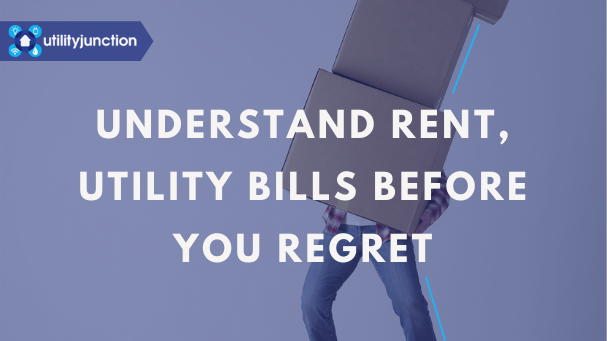
Understand Rent, Utility Bills Before You Regret

When you are deciding whether or not to rent a place, you may want to consider all the expenses you will have, including utilities, as they could make a big difference in terms of time, money, and energy in your life.
Throughout the month, utility bills can add up quickly. Before you sign a lease, make sure you know what you’re paying for.
First of all, who should pay utility bills when renting? Is it the landlord or the tenant? And which utilities?
So, between the tenant and the landlord, who pays utility bills when renting?

The short answer is: A lease will state whether utilities are included in your rent by your landlord. If utilities are included, then your landlord pays the bills. If utilities are not included, you are responsible for the costs yourself. However, you should read well and check which utilities are included. Because utilities can definitely be expensive.
Which services are involved?
Utilities that are usually included in your lease are electricity, gas, internet/cable, water, sewage, and garbage. Landlords will typically cover the water, sewage, and garbage if you live in an apartment. If you rent an apartment with all utilities included, you are likely paying these costs as lump-sum payments each month.
Local regulations might also determine who pays for what. For example, many towns require homeowners to use a particular waste service provider, and landlords in these towns are likely more inclined to subsidize garbage service to make sure tenants don’t build up waste in the rental.
Other landlords, particularly those who rent single-family residences, require tenants to pay for all utilities, regardless of the size of the unit.
When tenants pay for utility bills, who should pay exactly?
Long answer depends on your circumstances. Renting is a very broad term when it comes to paying utilities. Renting a place could mean you’re –
1. Renting a place for yourself and your family – When you are renting a home for yourself and your family, usually you take complete responsibility. This involves paying the rent, daily household expenses and paying utility bills. These responsibilities can be shared when your partner is also working.
2. Sharing it with friends – When you share the home with your friends, the usual set-up is – all expenses are divided. Utility bills are either earmarked to each person or everyone takes turns to pay them.
3. Staying as a paying guest – Staying as a paying guest is completely different. The house owner typically charges you for the space that you occupy & that’s all you need to pay. The utility bills are managed by the owner.
4. Signing long-term leases – The latest trend considering the ability to work remotely is signing long-term leases. The landlords enter into lease agreements with individual renters and companies. This where the ability to negotiate a favorable lease comes into the picture.
The good news?

This can be easily simplified by combining all bills under one roof, tracking expenses and consumption via the transparency of a digital platform. Transferring utilities with the click of a button.
The Utility Junction platform is the coolest, trendiest way to know what’s being consumed, and how much it costs, simultaneously. There are tons of apps out there that will help you track your monthly expenses, give you alerts when you overspend. However, there is no app out there that is solely focused on helping you save money on utility bills. That’s the gap that Utility Junction is trying to fill.
Utility bills are the core around which Utility Junction has built its product. The idea is not to lure users with the incentive of giving cashback for making payment or giving an instant discount. The idea is to inculcate & develop the idea of tracking utility bills in one place and start saving money organically. Organically here means, making it a habit to track usage. Track expenses. Plan & budget better. Never ever miss a bill payment due date.
So what’s in it for you?
At the end, what you achieve is a consistent approach towards –
1. Consciously tracking your consumption. This eventually ensures you are able to shave off the unnecessary usage & drive an overall reduction in the utility bills.
2. Planning better – When renting a home, any unforeseen expenses can affect your ability to manage the monthly expenses. With the consumption and expense trends in one place, you are able to plan & budget better for months especially when you are prone to use expensive utilities like electricity.
3. Avoid unnecessary expenses – Continuing from point# 2, paying late fees, in the most candid terms, is a criminal waste of money. These charges are avoidable and ensure you do not exceed your monthly budget. Utility Junction’s dashboard aims at ensuring you never pay a late fee. Ever. It continuously reminds you to ensure you have paid your bills on time. We have a saying for these reminders – they may get under your skin, but not your pocket.
4. Transfer utilities hassle-free – Moving homes? The stress of getting the utilities transferred is driving to your wits end? We know the feeling. If this can cause a headache for large companies in the real estate sector, it will overwhelm someone like us. Utility Junction comes to your rescue over here as well. For a small fee, we take care of getting your utilities transferred so that you can focus on what is more important – moving into your new home.
Bottom line
To conclude, with this platform, our aim is to ensure everyone who is in any association with managing & paying utility bills, is able to manage these tasks/activities/chores/operations in the smoothest possible way and still save money.
Get started here. It’s FREE. Need more information? Click here